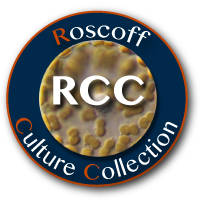| Title | Fine-tuning the flavor of Tetraselmis chuii by modifying nitrogen supply |
| Publication Type | Journal Article |
| Year of Publication | 2023 |
| Authors | Coleman B, Van Poucke C, Dewitte B, Casciaro V, Moerdijk-Poortvliet T, Muylaert K, Robbens J |
| Journal | Algal Research |
| Pagination | 103208 |
| ISSN | 2211-9264 |
| Keywords | Microalgae, Nitrogen starvation, RCC128, Sensory evaluation, Umami, Volatile organic compounds |
| Abstract | Dried Tetraselmis chuii biomass has potential as flavoring agent for the development of plant-based seafood alternatives because of its seafood-like aroma and strong umami taste. Depending on the cultivation conditions, microalgae can adapt their metabolism, resulting in a change in biochemical composition. The aim of this study was to assess if the flavor of T. chuii could be modified by changing the nitrogen (N) supply in the cultivation medium in order to maximize the potential of T. chuii as flavoring agent. The sensory evaluation by a trained panel showed that the T. chuii biomass obtained from N starved cultivation conditions (N-deplete) is characterized by a significantly stronger odor intensity and earthy-like off-odor compared to T. chuii biomass obtained from N sufficient cultivation conditions (N-replete). The analysis of volatile organic compounds (VOCs) using SPME-GC–MS showed that these odor features of N-deplete biomass are attributed to an increased formation of odor-active VOCs including 2,3-butanedione, 3-methylbutanal, 3-methylbutanol and sulfur-containing dimethyl sulfide and dimethyl disulfide. In contrast, the T. chuii N-replete biomass possessed a significantly stronger taste intensity, umami and salty taste compared to the T. chuii N-deplete biomass. The higher umami is attributed to the significantly higher free glutamic acid (Glu) and adenosine monophosphate (AMP) concentrations in N-replete biomass compared to N-deplete biomass. This study illustrates that flavor and palatability of microalgae biomass is strongly affected by cultivating conditions and modifying these conditions can be an important tool in the development of plant-based seafood alternatives. |
| URL | https://www.sciencedirect.com/science/article/pii/S2211926423002412 |
| DOI | 10.1016/j.algal.2023.103208 |






